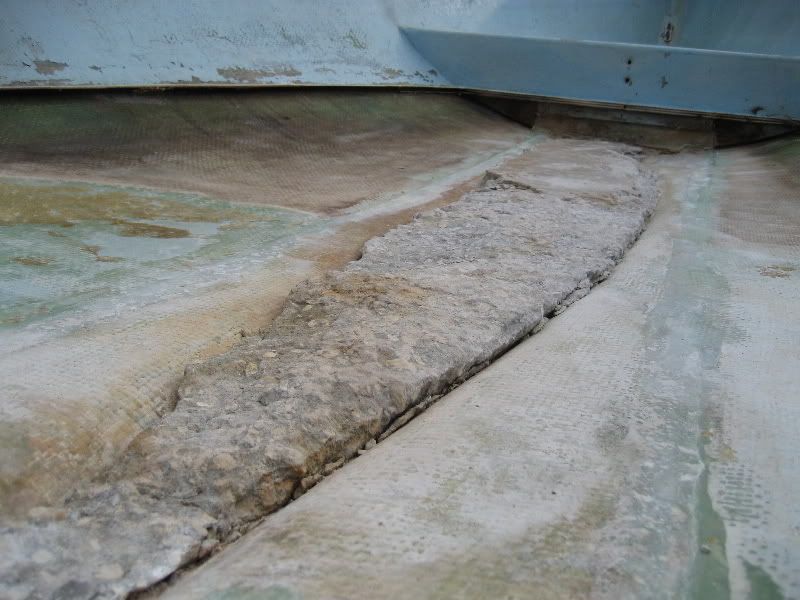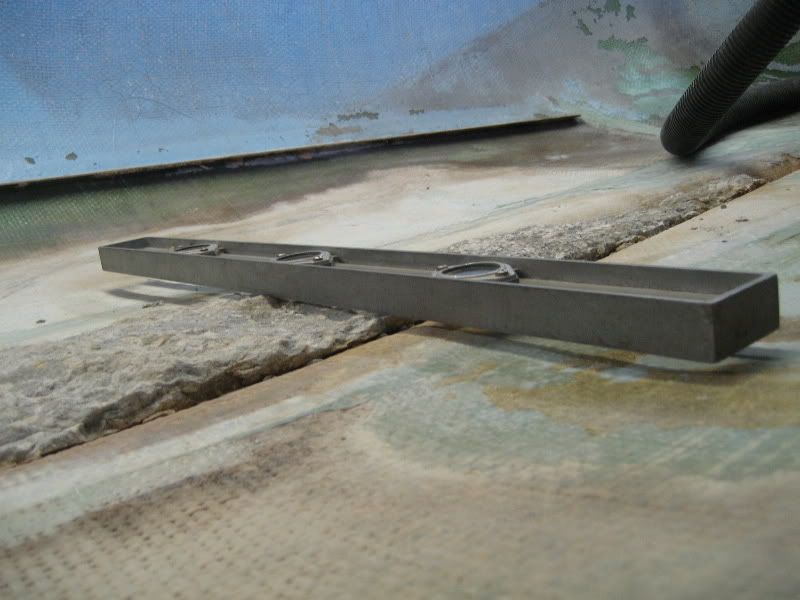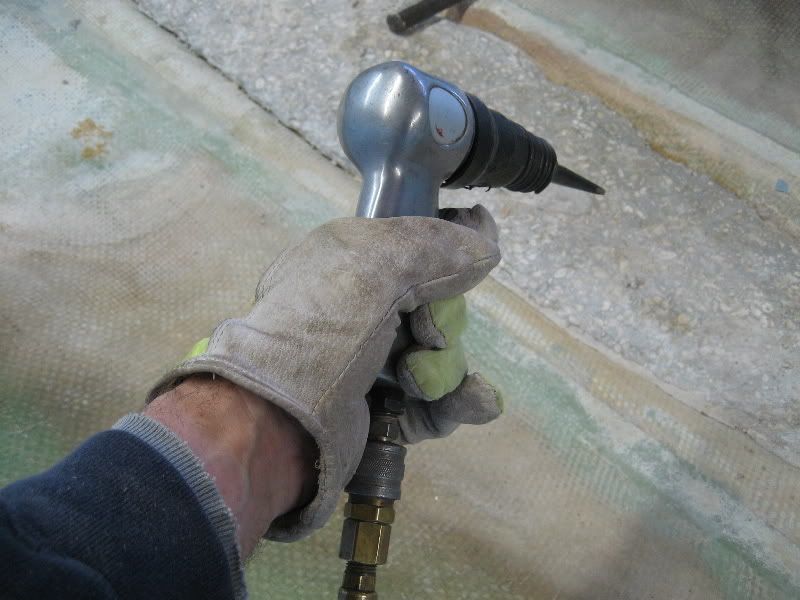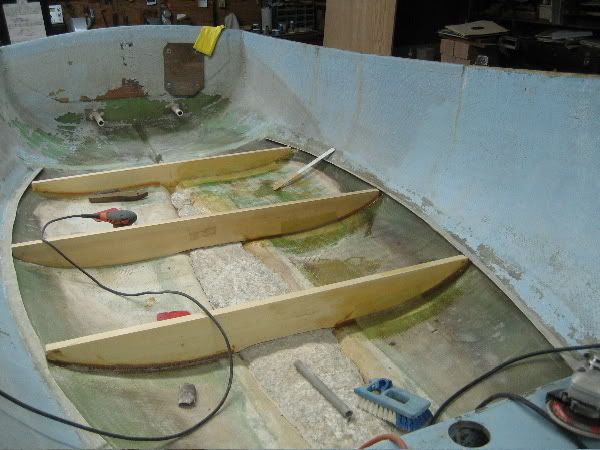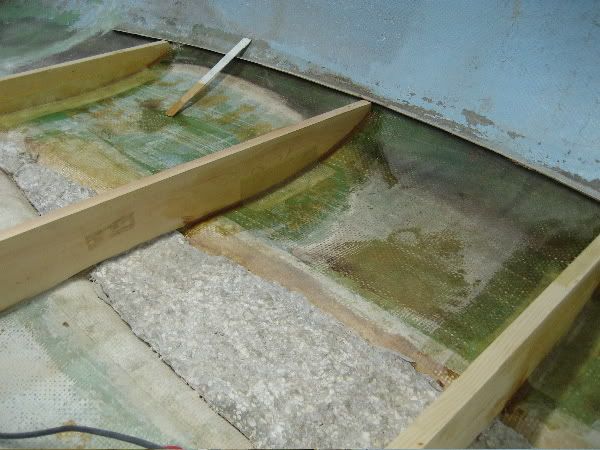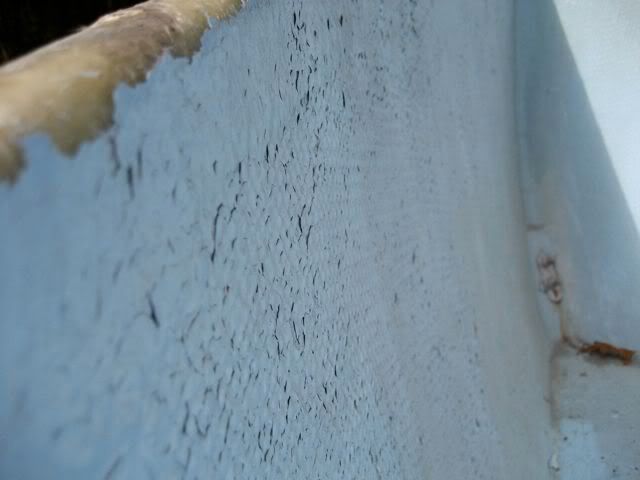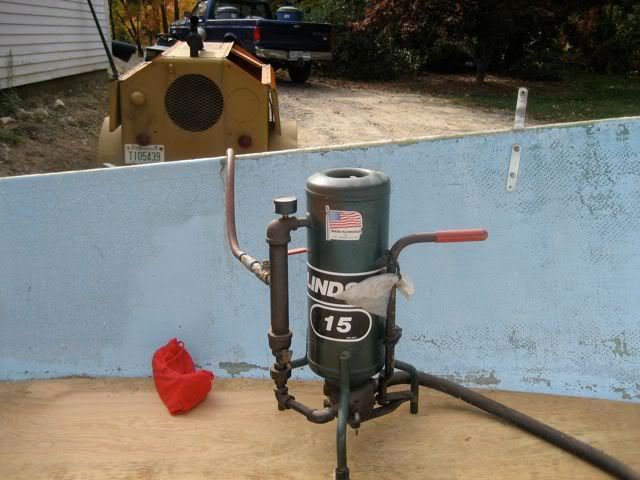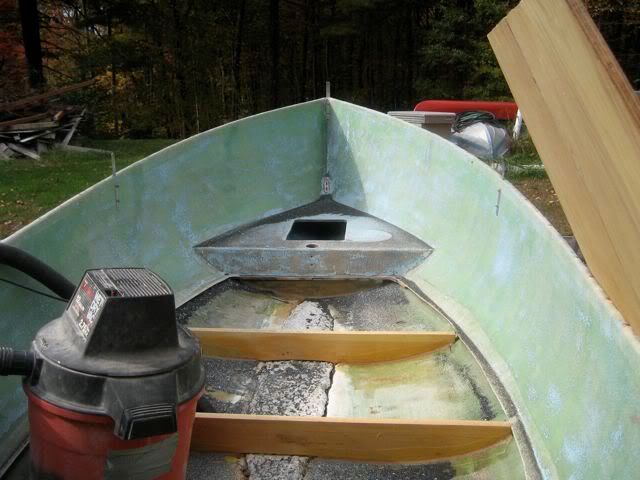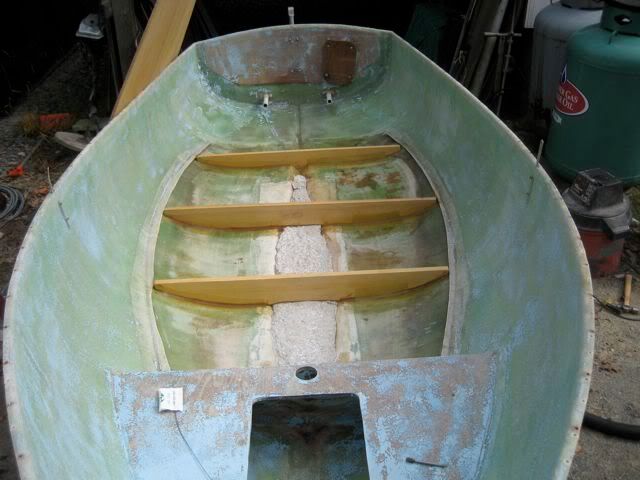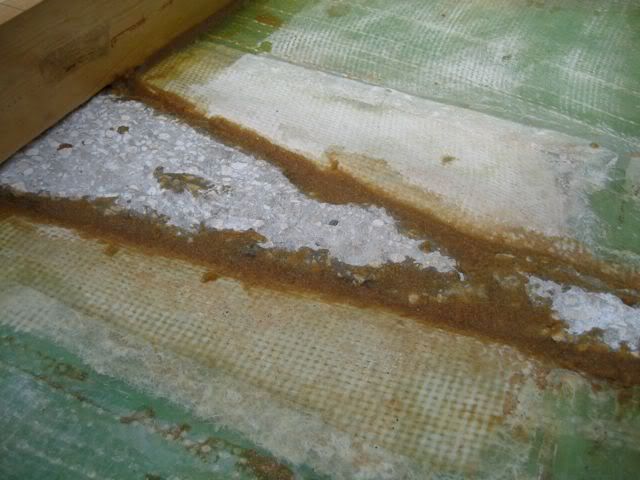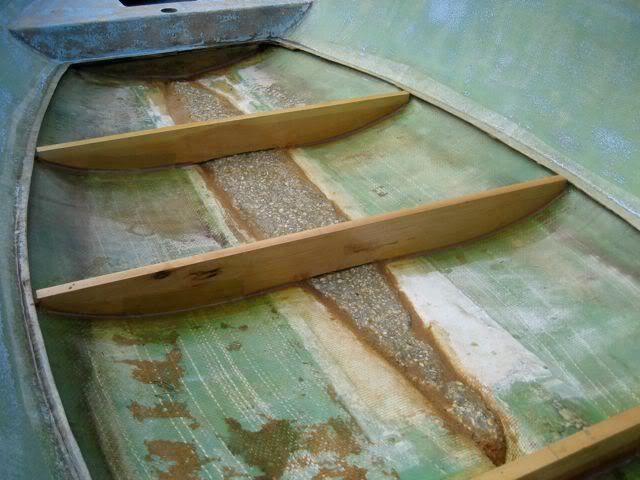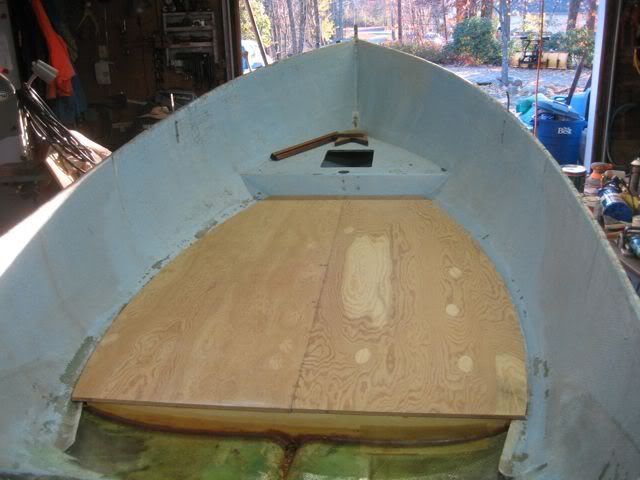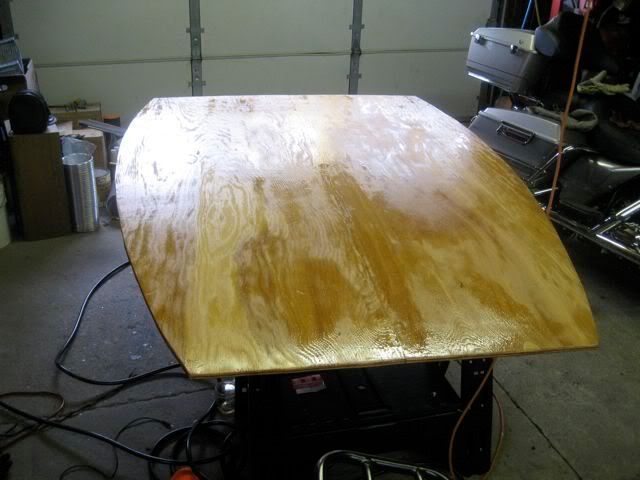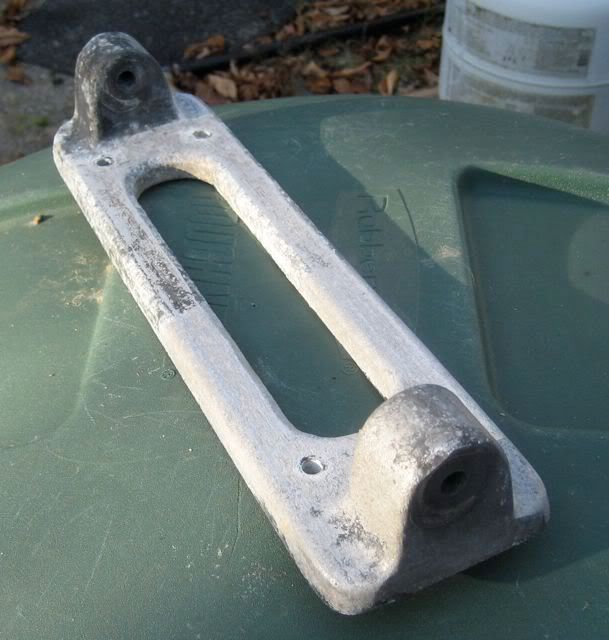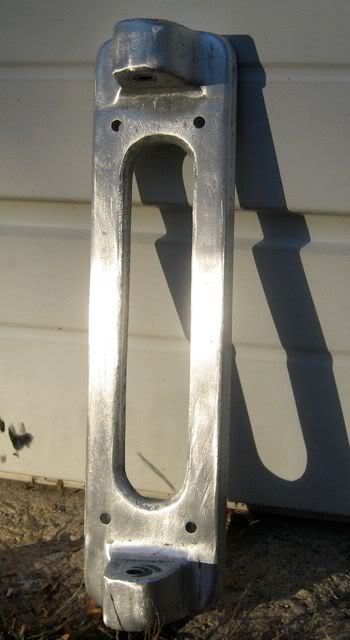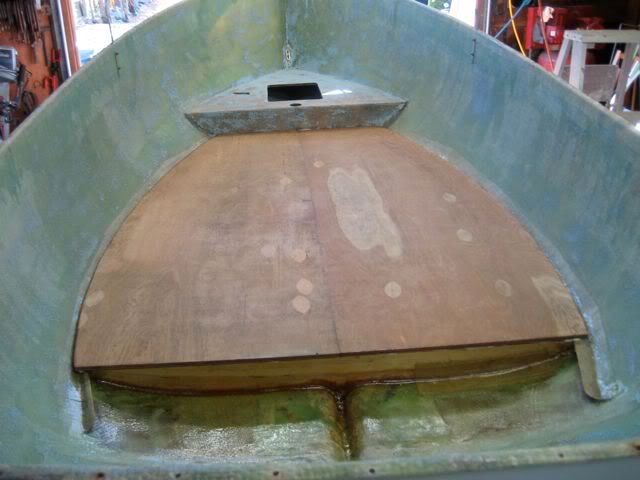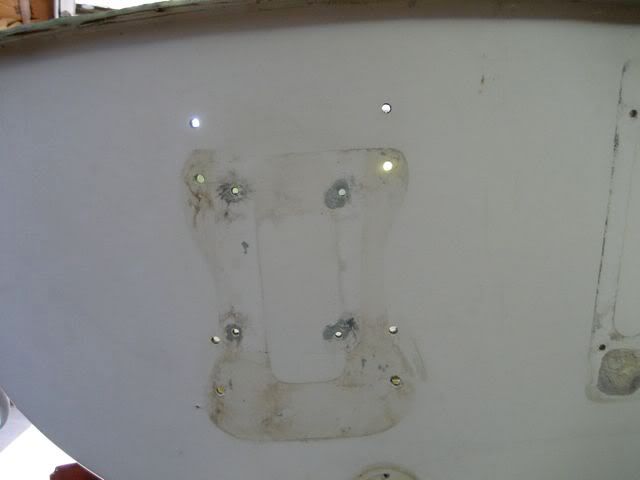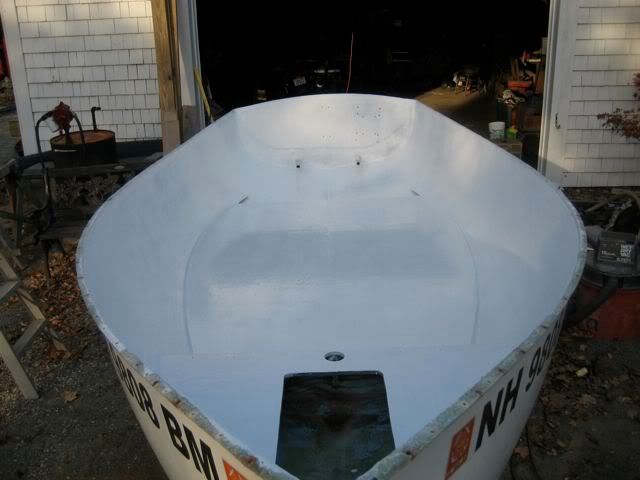I bought the boat from a little old lady who used to sail it on a lake on sundays.
I made some new companion way wood which I installed. I organized the lines and sorted through the pile of sails that came with the boat and my son and I sailed her from Rye NH out to the Isle of Shoals. The rail was in the water a good part of the time. That made it apparent that the deck to hull joint was leaking and needed to be resealed.
One thing has lead to another..
I start here.
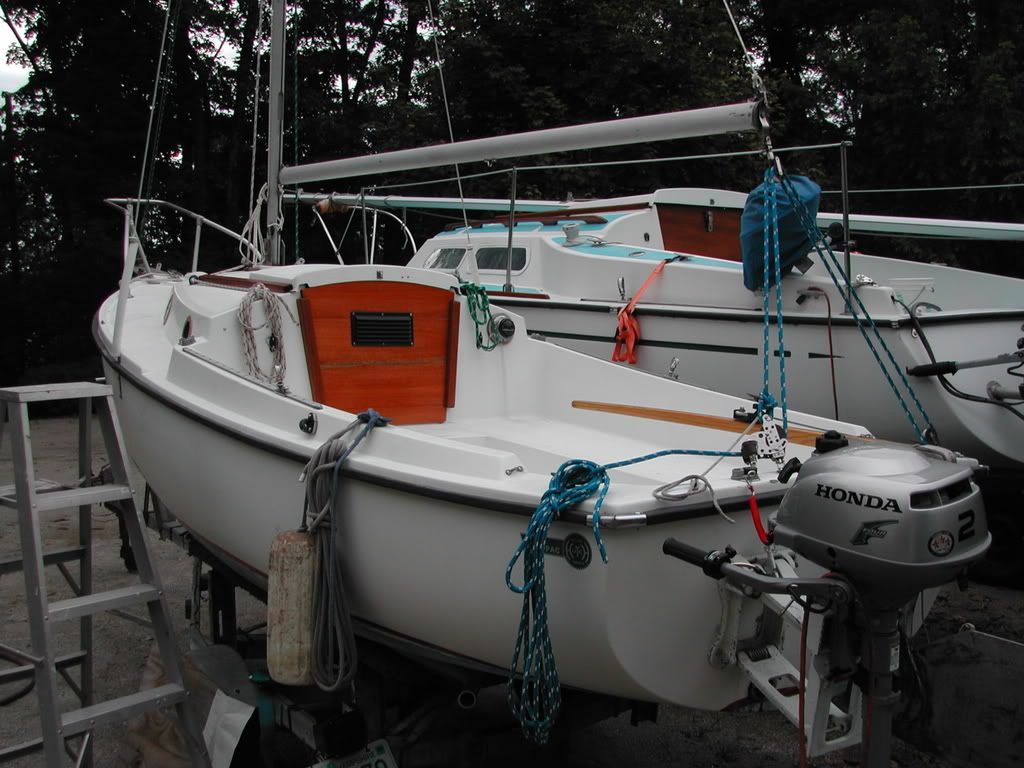
Then I removed the moulding over the joint.
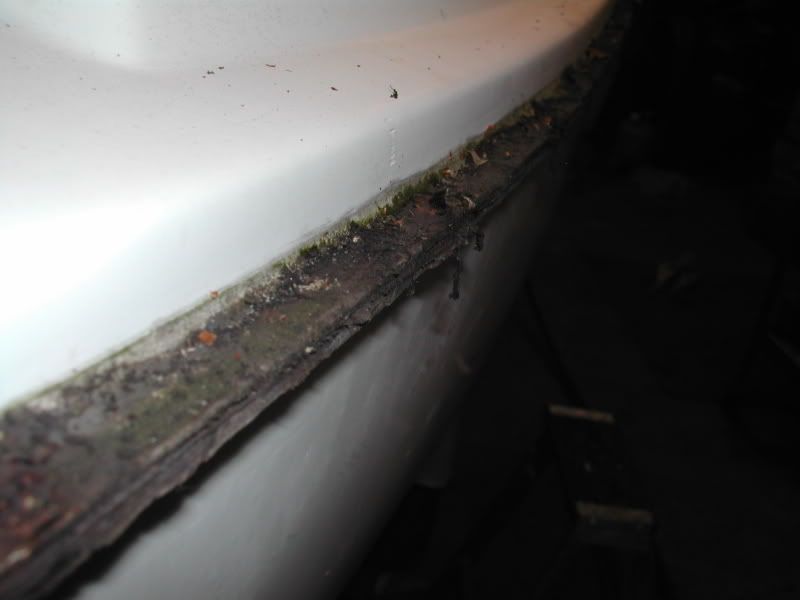
I cleaned.

Rusted steel rivets had taken a toll on the flange.

I replaced about 56 steel rivets and left about 10 aluminum rivets that were still in good shape. Then the good forum advised that it would be best to put the caulking between the flanges before riveting. I might get away with sealing the already fastened flanges but I had not put backers on the rivets for some stupid reason so I drilled out all the rivets and decided to lift the deck enough to apply the caulking. The deck was still held to the hull by the Cockpit scupper drain tubes which are fiber-glassed in at each end. I cut the 1" PVC pipes with enough room to glue couplings on at re-assembly.
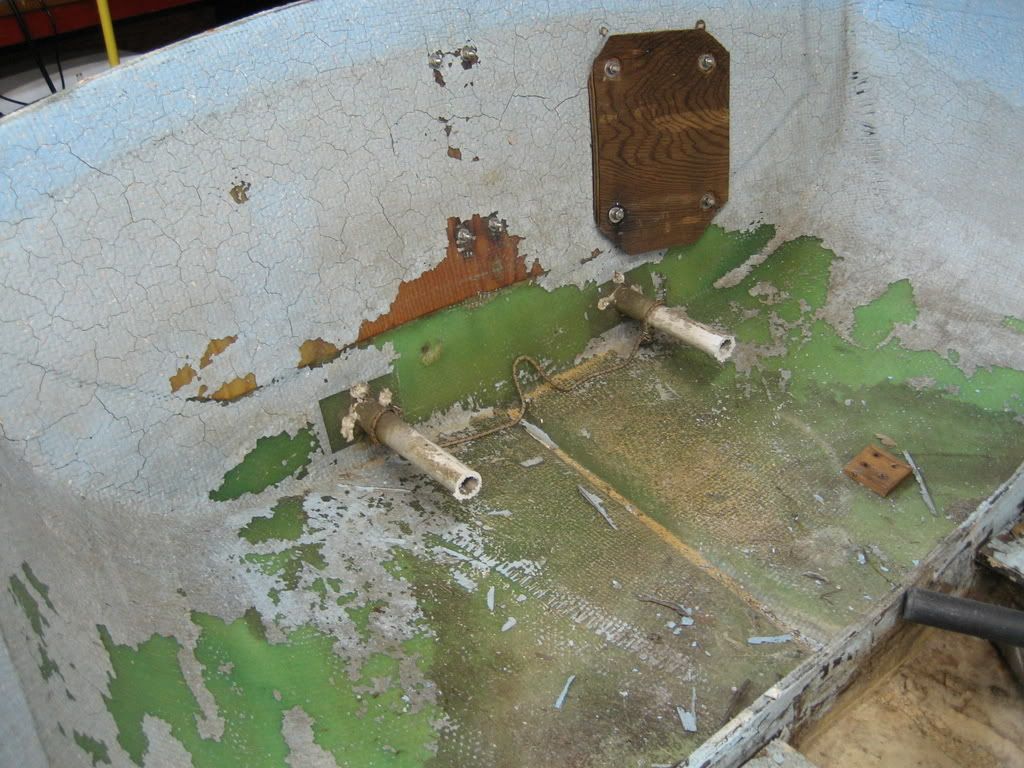
I lifted the deck off the boat.

Demolition...........


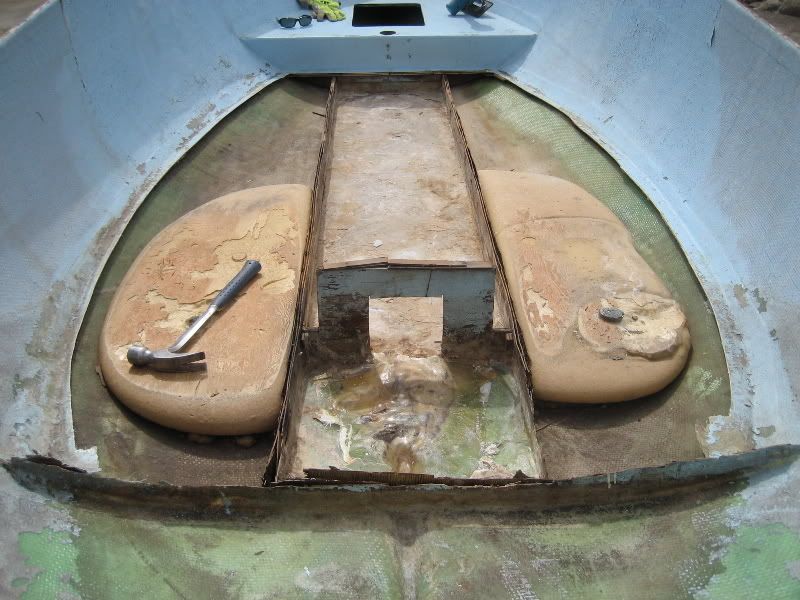

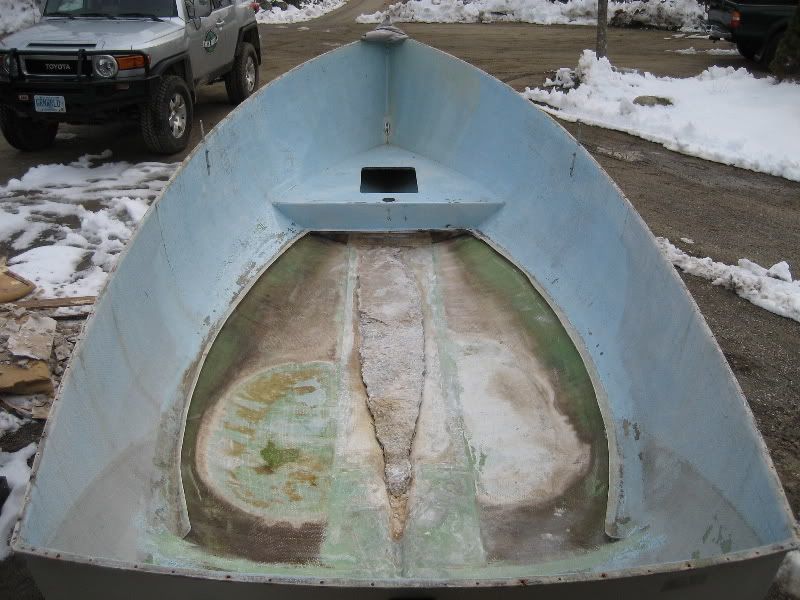
The cement that had been poured to smooth the concrete that filled the keel was brittle and cracked because it was very thin where it extended over the base of the hull.
My question now is; How can I best isolate the ballast concrete from water intrusion? Would it be best to smooth it down to the width of the keel and flush with the base of the hull and then apply a flexible caulking and fiberglass panel epoxied to the hull? Is it ok to seal the concrete in fiberglass?
